While everyone on The Boat Galley team is experienced with remote work, my assistant, Pamela Douglas supported her cruising lifestyle with a greater variety of work than any of us. So if working while cruising is part of your plans, maybe her experience will give you some ideas.
Do you ever wonder if you could find remote work while cruising? To perhaps start voyaging before you retire? Or extend your travels when the money runs out?
I bet you can. I did. And here’s how.
How It Began
My partner and I began cruising by selling our house in upstate New York. It gave us the money to buy our Pacific Seacraft 34 and a small cruising kitty. But outfitting and maintaining a 30-year-old boat diminished our savings quickly.
We would have had to find remote work or return to land to make a conventional living.
Fortunately, we had strong relationships formed through our work and hobbies. And those relationships led us to remote work opportunities.
Is it a possibility for you? Let’s start by looking at some different ways cruisers can work remotely while cruising.
Ways for Cruisers to Work Remotely
So what work options are available to cruisers?
Work as a Consultant in your Field
Professionals may be able to do consulting work in the field they previously worked full-time. Cruising seems to draw a lot of engineers—something about the professional problem-solving skills lends itself to boat life. I’ve met several engineers working as consultants. They charge a higher hourly rate for working independently than they did when they were employed. And they can choose how much they work.
One nuclear engineer I met in Georgia had the cheek to mention that he was earning more money than he knew what to do with working as a consultant in his field.
My partner, an architect, earned a full architect’s hourly rate even when he was drafting or doing code research (tasks that usually paid less).
While the work may be quite similar to what you did as an employee, you will have to find jobs. And you will be responsible for paying your own taxes. But, of course, that is true of most remote jobs, including the next option.
Run Your Own Internet-Based Business
In 2010, I started my dog blog, Something Wagging This Way Comes. Started as a hobby, my website eventually provided a small income. And strengthened my skills in writing, editing, search engine optimization, simple coding, and more.
After moving aboard Meander, I began work as a virtual assistant for a pet travel website. The owner lived and traveled full time in an RV so we shared a good understanding of the challenges nomadic workers faced.
My skills in WordPress, writing, and research meant I could step easily into the job without daily interactions with the owner.
Word of mouth got me jobs in other pet technology fields before I applied to join The Boat Galley team.
I pay my taxes with no contribution from an employer. I’m responsible for billing for my time. And I must keep bringing work in with a mix of long-term and short-term jobs.
Become a Content Creator
Many cruisers dream of earning income from their cruising as content creators. They look forward to getting endorsement deals from marine companies. Or having millions of subscribers on their YouTube channel.
Unfortunately, few cruisers earn a living from their travels. It takes many hours of work to shoot and edit videos. And everything you do becomes work. Because you must always keep creating.
There’s a reason content creators experience a high rate of burnout.
But if that’s your dream, and you have the drive and the willingness to do the work, it is possible. And creating a plan to do it is beyond the scope of this post. But you will find resources online to help you.
Finally, there’s one more form of remote work while cruising.
Work as a Remote Employee
Learning from Covid lockdowns and improvements in internet access and technology make regular, remote employment more likely. Certainly being able to rely on a regular paycheck (with tax withdrawal) and routine is easier than being your own boss. But it can be less flexible.
Your land-based coworkers and bosses will find it hard to relate to your life. For example, in hurricane season you’ll be thinking ahead to keep your boat safe. Even if you work for a company in coastal Florida, their awareness of hurricane hazards will pale next to yours.
Communication is key to making it work.
Whichever form of remote work you choose, you’ll need to find the opportunities.
How to Line up Remote Work
You’ll find several ways to learn about remote work. Which one is right for you?
Continue a Relationship with a Prior Employer
This is a common method for people doing consulting work. And making it work requires a plan and emotional intelligence.
My partner told his boss about his cruising plans two years in advance. During that time, he finished up projects he had been working on. And left her in good shape moving forward.
When it became obvious we’d need to increase our earnings, my partner emailed his last boss. He asked if she needed help writing reports or proposals. Or drafting results of field measurements she had taken.
Because he already knew the office standards and client expectations, it was an easy sell. He got remote work from the boat. His boss got help for busy times she didn’t have to train.
When projects with his last boss dried up temporarily, my partner emailed the owner of another firm he had worked for 15 years earlier. Over time, he read their newsletters and kept in touch by occasional email.
The company newsletters shared that the firm owner had begun volunteering with the Coast Guard Auxiliary. So when my partner emailed that we were living on a boat and cruising full time, the firm’s owner was intrigued.
I doubt he would have gone looking for a remote worker. But the boating connection triggered his interest. Don’t underestimate how sexy cruising is to a subset of employers.
Build New Relationships
I had been a long-term, regular commenter on the pet travel website when the owner asked if I could do some work for her. Since I was cruising with my golden retriever onboard, my interest in finding pet-friendly places dovetailed well with her topic.
Work on the pet travel site led to word-of-mouth referrals to other businesses in the pet field needing help with social media and other tasks.
Long before we moved aboard, I did what many wannabe cruisers do—researched, researched, researched. I joined sailing and cruising groups on social media and again, commented thoughtfully. My comments resulted in a guest post for The Boat Galley. So when Carolyn advertised for a virtual assistant, I applied.
In our “conversations” through the comments section, Carolyn saw we had a similar cruising mindset. My application showed the practical skills I could bring to The Boat Galley just as I had brought them to my own and others’ websites.
Online Job Search
A good place to start on your search for remote work is by cleaning up your LinkedIn page. Many of the messages in your inbox will be scams or recruiters looking to pad their contacts. But it’s another way to increase visibility and strengthen relationships with others in your field.
Many cruisers are 50 and older, making the AARP Job Board a good place to check if you’re a member.
And new sites listing remote jobs come up all the time. It’s worth searching online for the “best places to find remote work.” Here are a bunch of remote work job boards available as of the day I’m writing. Here’s another one for online job opportunities.
There are also boards for gig work like Fiverr, 99Designs, and Upwork. But be aware that these jobs don’t often pay well. But if you’re a graphic designer or have other creative skills, you might find it worth taking occasional small projects.
If you have a valuable skill, you should be able to find remote work while cruising. But is working while cruising like working on land? Or are there other things you need to consider?
Considerations of Remote Work
So how is remote work different on a boat? Well, there are a few issues you need to consider.
Internet Access
Fortunately, it’s easier for cruisers to get good internet access than ever. With the addition of satellite internet to the old wifi access from a library or cafe or grabbing a signal from a cell tower, staying connected is easier than ever.
But it’s nowhere near as reliable as the hardwired internet you’re used to from an office.
I remember dropping the lunch hook near the Onslow Beach Swing Bridge on the ICW because it was the only place we got good enough internet for a hastily scheduled Zoom meeting with a boss.
Flexibility is always important for cruisers—never more than when you’re working from the boat.
Technomadia is a great resource for the latest information on internet tech. The site owners offer free and paid resources for the best information on remote online access. And they split their year between cruising on their motor yacht and traveling by RV. So they understand the demands of working as a nomad.
Availability
Cruising always requires planning that involves your maintenance schedule, weather, insurance requirements, and more. But add work to the mix and you have another factor to plan around.
If your work requires you to be available while you’re waiting for a good weather window to head to the Bahamas, you’ll have some choices to make.
Travel
Will your remote work require you to travel? If so, you’ll need to figure out access to airports, train stations, or rental cars to coincide with trips to a client.
My partner found it helpful to work onsite for his architecture clients. We’d hunker down in a marina somewhere so he could return to work onsite while I stayed onboard with the dog.
Yes, anchoring would have been less expensive. But the extra time it took to dinghy the dog to shore several times a day would have cut into my work enough to make the marina bill more reasonable—especially when you take advantage of a monthly rate.
Workspace on a Boat
Do you require quiet to work? Do you want to sit at a desk? These are just a few questions you have had to settle for yourself.
I’ve met several cruisers who planned to work at their nav stations but found it uncomfortable over time. You may have to alter your vessel to create a comfortable workspace.
I find it easy to work on my laptop nearly anywhere. My only concern was focusing on work and avoiding distractions.
For me, sitting on the settee facing after when I worked and sitting on the settee facing forward when I was reading or relaxing helped me enter “work mode” when I needed to focus.
None of these issues are insurmountable. They just need a little thought.
Final Thoughts on Remote Work
Would I like to have been independently wealthy and not had to work while cruising? I guess so. But I don’t regret it. Especially since the alternative would have been returning to land.
If remote work is a good fit for you, hopefully, I’ve given you a path forward.

Pamela Douglas cruised in the Atlantic Intracoastal Waterway and Chesapeake and Delaware Bays aboard a Pacific Seacraft 34. She is a member of The Boat Galley team and developed our Cruising With Your Dog course. You can also find her favorite Atlantic coast destinations and other information about dogs at Something Wagging This Way Comes. This post is based on one originally published at The Wayward Home.

Quickly find anchorages, services, bridges, and more with our topic-focused, easy-to-use waterproof guides. Covering the ICW, Bahamas, Florida, and Chesapeake.
Explore All Guides



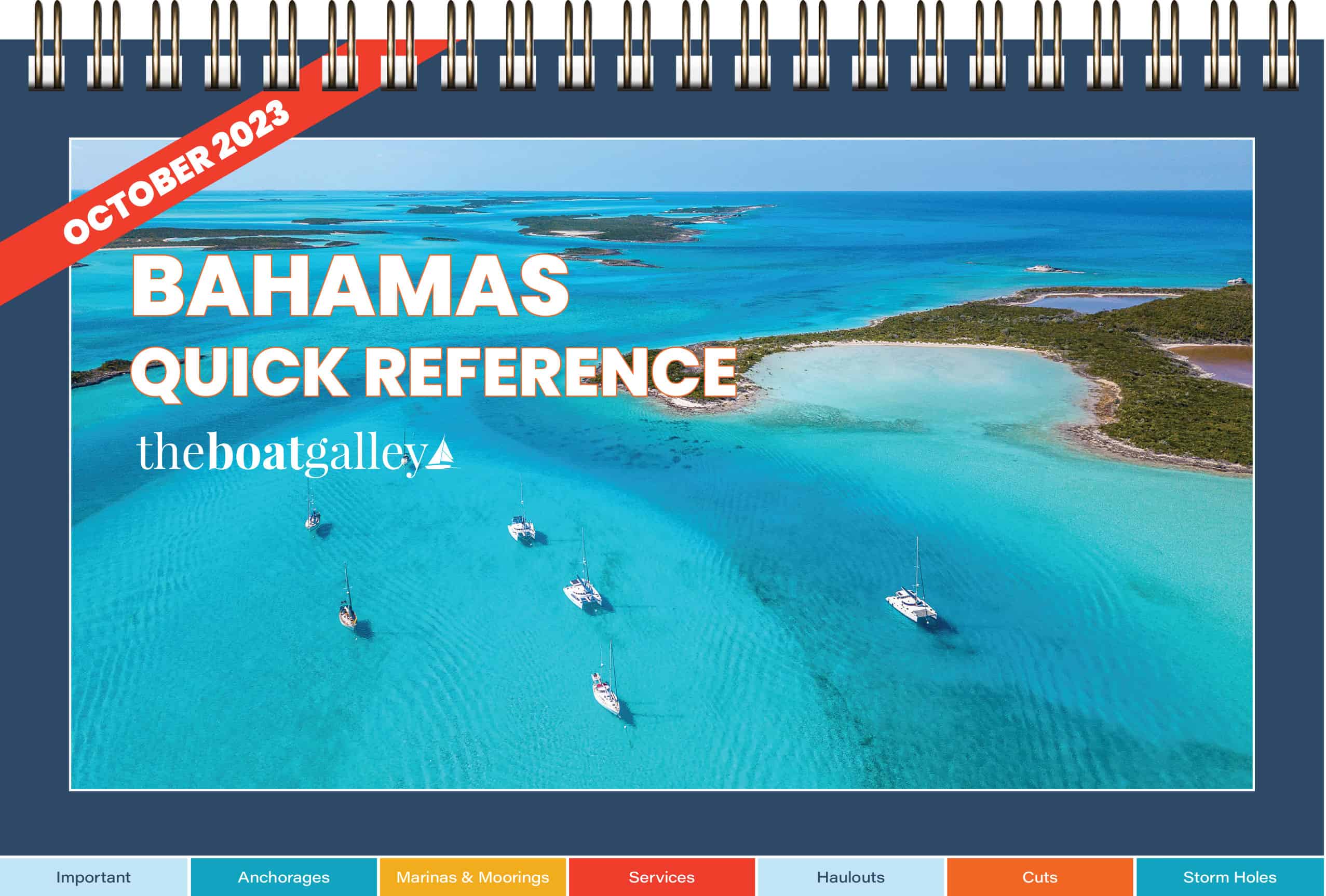
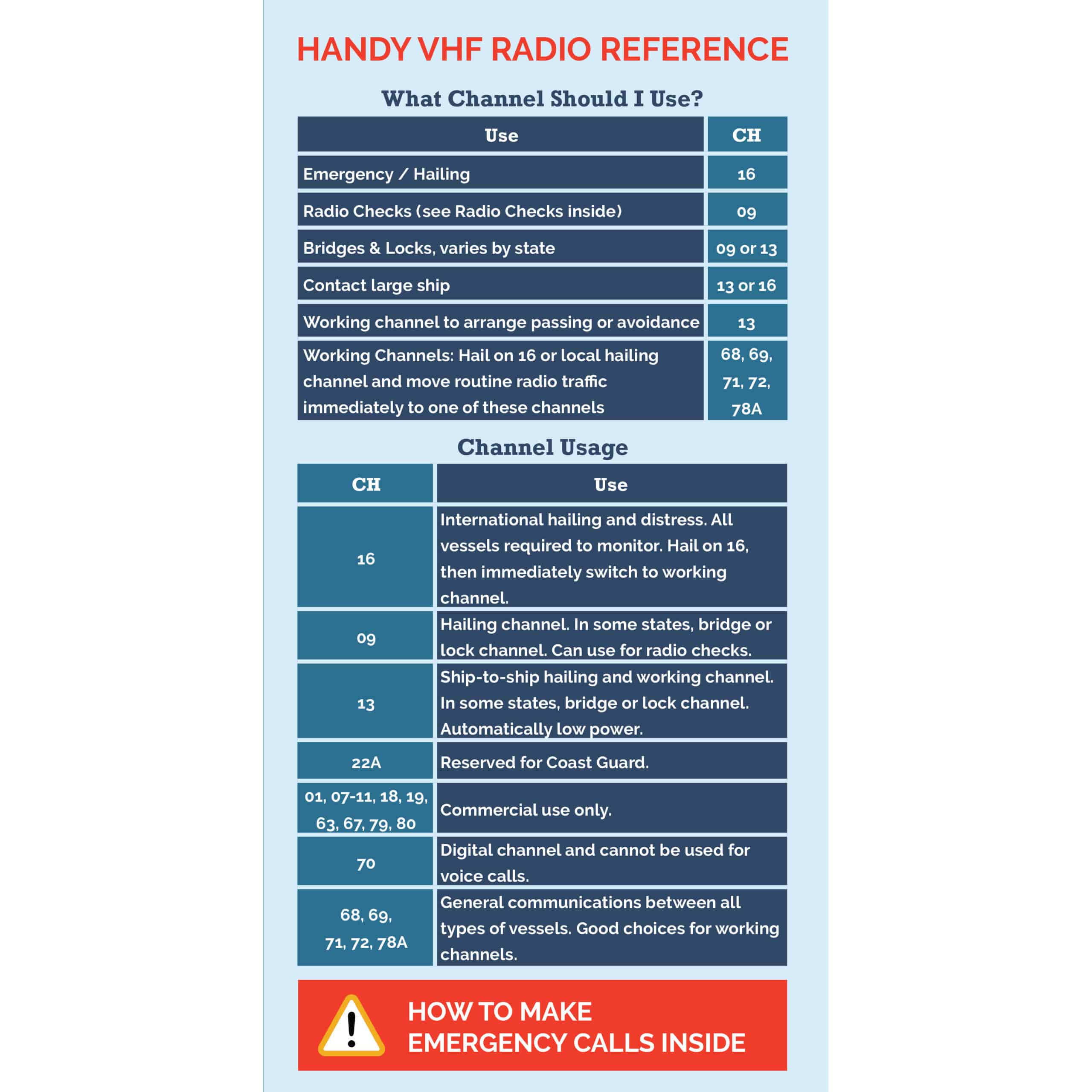



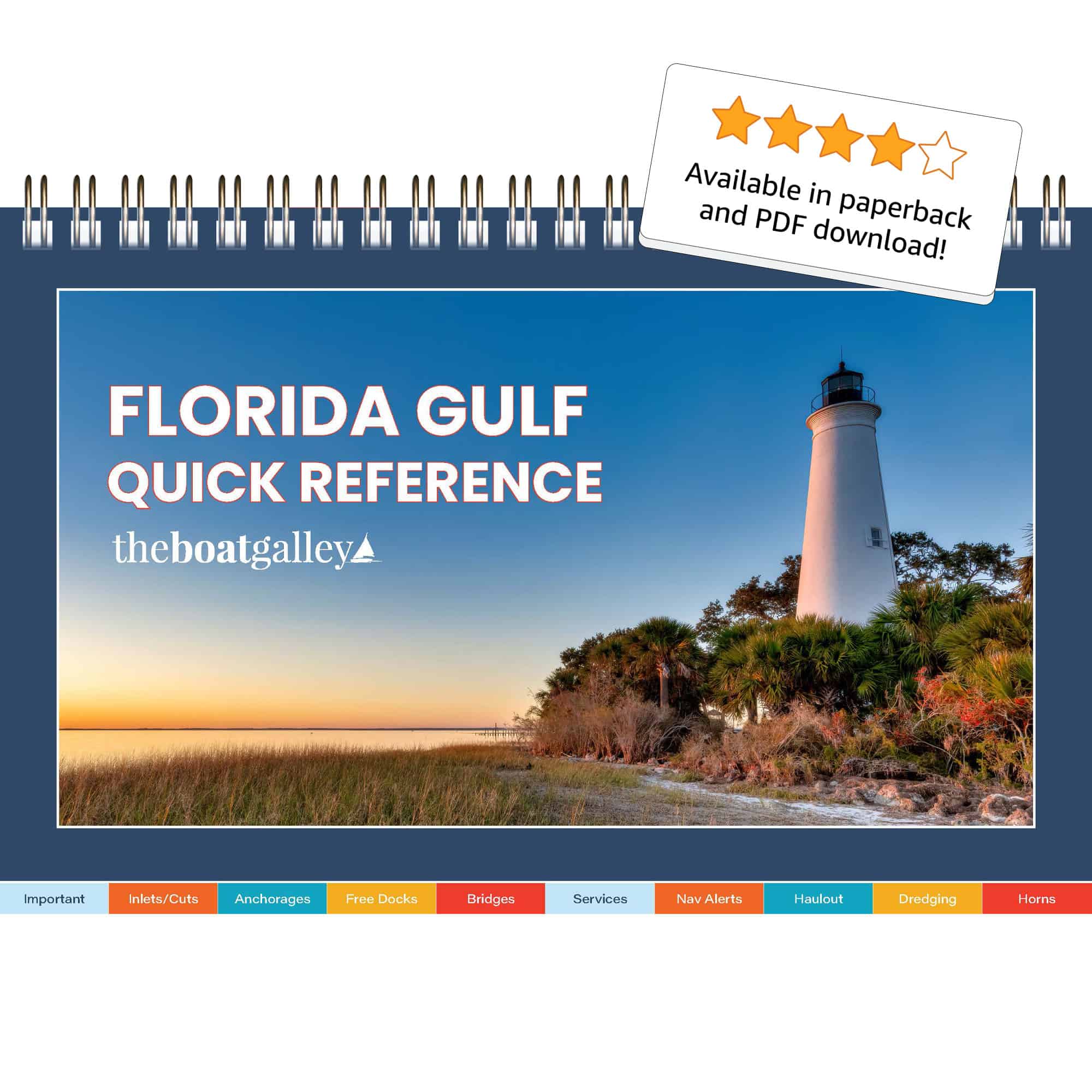
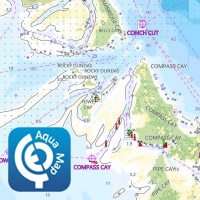
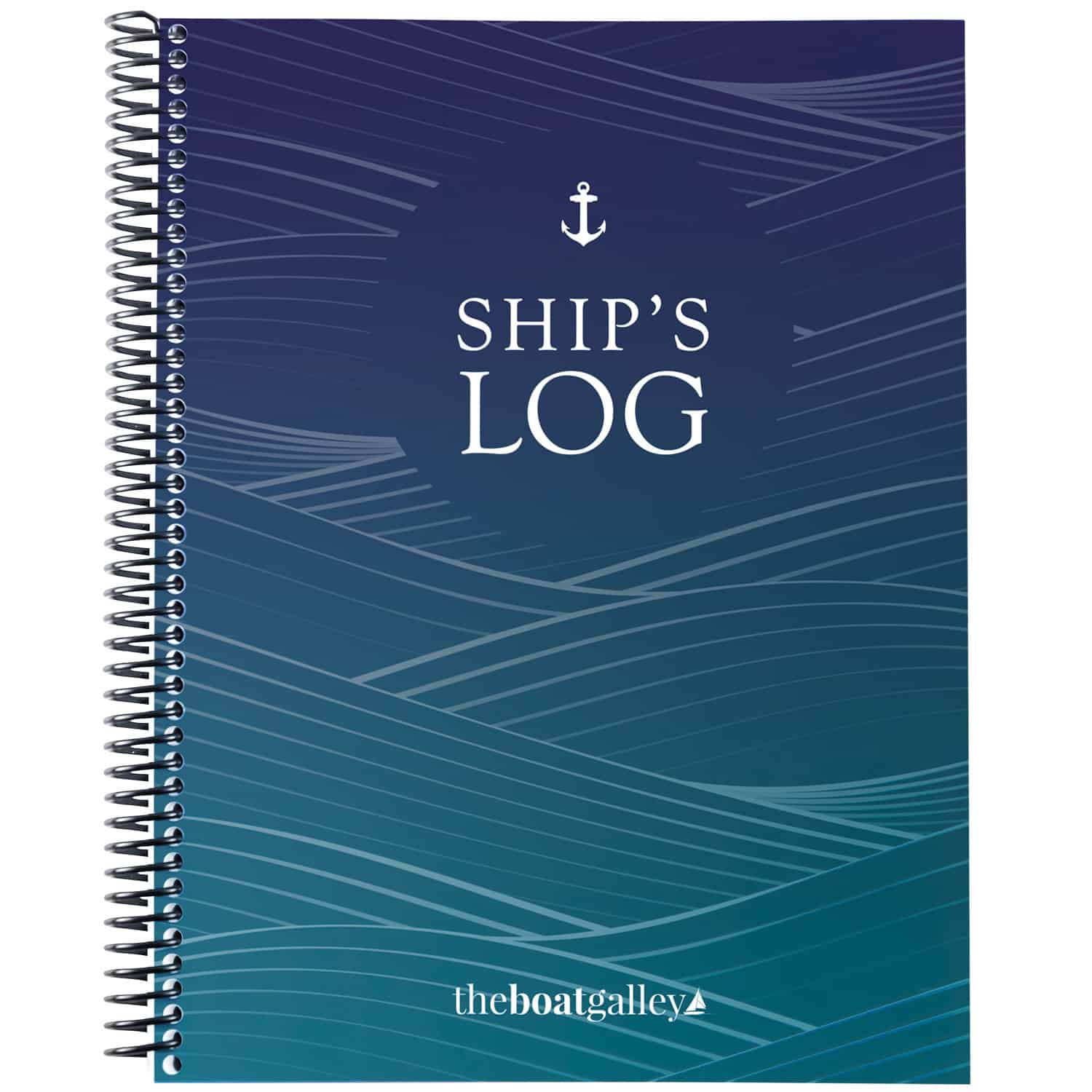
Leave a Reply